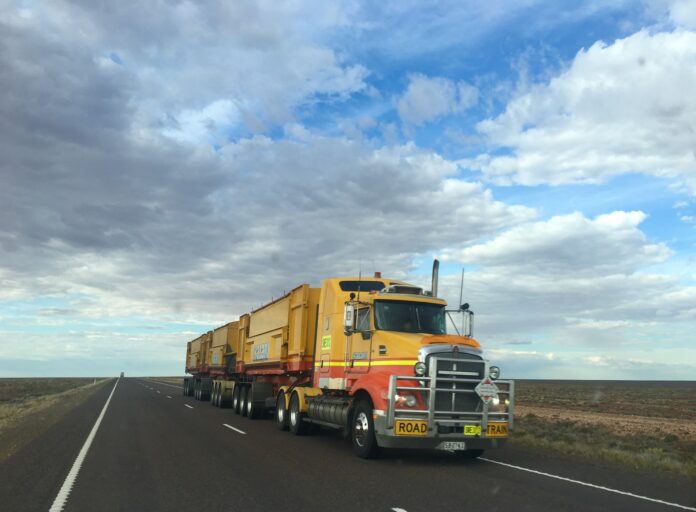
If you drive on the highway often, you’ve doubtless seen large trucks barreling along, on their way from city to city or state to state. A company might fill them with anything, from finished products to raw materials. You also probably know to keep your distance since these vehicles are a lot bigger than you and could seriously damage your car if they run into you.
You would hope that every truck driver on the road is a safe and responsible individual. They should never speed to try and get where they’re going to meet a deadline, and they should never let anything distract them, like a text message or phone call. You’d also hope that a truck driver would have sufficient sleep and they’d never use alcohol or drugs before driving.
Apart from all that, what you want is for every truck driver on the road to have a CDL license. Let’s talk a little about those CDL licenses, what it takes to get one, and why they matter so much.
What is a CDL License?
As the Patino Law Firm notes, “qualified truckers undergo rigorous training to obtain a commercial driver’s license.” In other words, no business is going to let a driver hop behind a big rig’s wheel just because they say they know how to do it. To get a CDL license, a driver must:
- Log many practice hours
- Pass a written test
- Pass several skill tests
Once you have your commercial driver’s license, you can apply for many different positions you could not otherwise get. A CDL license is a great thing for individuals who do not have a college education because, in most cases, all you need is a high school diploma to land a fairly high-paying job.
You need to pass federally regulated tests to get that license, and those tests typically weed out any driver who doesn’t have the skill for this type of vehicle operation. It’s not just about showing you know the traffic laws and can handle the rig. You also need to indicate that you understand how carefully you need to conduct yourself when you operate a several-ton vehicle.
Possible CDL Disqualifications
The federal transportation laws indicate several conditions where a person cannot drive a commercial truck or similarly-sized vehicle. Several criminal and traffic offenses will disqualify an individual from getting that license. Some other possible disqualifications might include:
- Drug or alcohol addiction
- Mental illness
- Poor vision or hearing
Once you have that CDL license, you also have to conduct yourself accordingly if you want to keep using it. If you engage in particular behaviors, you’ll get a temporary license suspension. Other behaviors will cause a permanent license ban.
For instance, if you commit a felony or leave an accident scene, that can get you a one-year suspension the first time and a lifetime ban the second. An alcohol violation can get you a three-year suspension, while subsequent violations can get you a lifetime ban. Two severe traffic violations will get you a 60-day suspension, while three serious offenses mean a 120-day ban.
Commercial Driver Qualifications

There are several qualifications any driver must meet if they hope to get their CDL. They must first have a valid driver’s license. They must be a US citizen. They have to provide a fingerprint and get the proper medical certification.
Then they are on to the knowledge tests. These cover things like applicable endorsement tests and air brake tests. There is a general knowledge section and a commercial rules section.
Once the would-be driver gets past those hurdles, they next have to conquer the practical skills tests. Basic vehicle control will be up first, followed by the road test and the air brakes test. The tester will also look closely at the vehicle the applicant uses for the test to make sure that it’s up to various codes.
Further Restrictions

If you have your CDL license, you can drive certain vehicles, but not all of them. There are different CDL designations. Any company hiring truckers to haul their loads across the state or country needs to make sure they have the proper CDL designation.
For instance, some CDL licenses only allow drivers to operate within one state or a couple of different states. You also only might be able to transport standard cargo, but not persons or hazardous materials.
If a trucker gets in an accident, the authorities will look at their qualifications and what took place on the road. They will determine whether the trucker acted negligently or whether mechanical failure or something similar caused the crash.
If an investigation determines a trucker consumed alcohol or drugs, fell asleep at the wheel, let a phone call distract them, etc., the authorities will determine how long of a license suspension is in order.
These investigators take these matters seriously since unsafe trucker behavior can cause significantly more damage than dangerous car driving behaviors. It’s because trucks are so much bigger and heavier.
The NTSB

The National Transportation Safety Board determines whether to suspend a trucker’s license after an accident. They have many recommendations for how truckers should conduct themselves when they are out on the road.
For instance, the NTSB wants to ban all electronic devices, like smartphones, from truckers’ cabs. They also want random trucker drug testing and mandatory sleep apnea screenings.
That might seem excessive, but not when you think about how large and dangerous trucks can be. You can easily make $60K or so as a trucker, or even more, depending on your experience level and how much you work. However, as a truck driver, you potentially hold many lives in your hand because of the massive vehicle you’re piloting over the roads.
Getting the CDL is challenging, which is as it should be. You don’t want just anyone driving a truck unless they have shown they take it seriously, and they’re not likely to act recklessly on the highway.
More about trucks, you can find them at maddigi.com.








